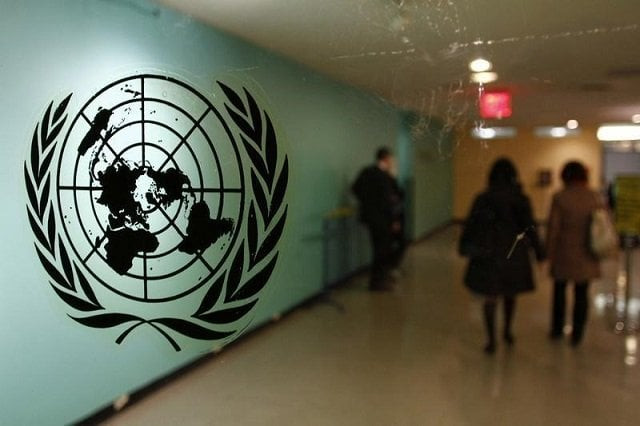Pakistan urges access to assistive technology
Technology aimed to help people with non-communicable diseases

PHOTO: REUTERS
Alongside Pakistan 39 other countries proposed the resolution which was considered in the first stage by the WHO Executive Board in its meeting held in January, 2018. Upon recommendation of the Executive Board, the resolution was tabled before the World Health Assembly.
Pakistan presented the outline and objectives of the resolution. Later on 35 countries from different regions debated on the resolution and highlighted the need to ensure both access and quality assistive devices.
The resolution considers that one billion people need assistive technology and that, as the global population ages and the prevalence of non-communicable diseases increases, this figure will be more than two billion by 2050.
Assistive technology enables and promotes inclusion, participation and engagement of differently-abled persons, ageing populations and people with co-morbidities in the family, community and all areas of society, including the political, economic and social spheres.
The resolution also recognises that the inclusion of assistive technology, in line with countries’ national priority and context, into health systems is essential for realising progress towards the SDG targets relating to universal health coverage.
Under the resolution 194 members of the WHO have been urged to develop, implement and strengthen policies and programmes, as appropriate, to improve access to assistive technology within universal health and/or social services coverage to ensure that adequate and trained human resources for the provision and maintenance of assistive products are available at all levels of health and social service delivery.
The resolution also guides the members to ensure that assistive technology users and their caregivers have access to the most appropriate products and use them safely and effectively; where appropriate, based on national needs and context. It is also suggested to develop a national list of priority assistive products that are affordable and cost-effective and meet minimum quality and safety standards, drawing on WHO’s priority assistive products list and to develop a new generation of products including high-end technology in partnership with academia, civil society organisations and also in cooperation with the people who need the equipment.
In 2021m WHO will prepare a global report on effective access to assistive technology in the context of an integrated approach while a report on the progress achieved would be submitted to the Assembly in 2022.
A spokesperson of the Ministry of National Health Services, Regulations and Coordination said the passage of the resolution was a major success for Pakistan.
“We have been working hard on this for over two years and endorsement by the global community has enhanced the country’s stature besides giving hope to the one billion people who need assistive devices across the globe”.



















COMMENTS
Comments are moderated and generally will be posted if they are on-topic and not abusive.
For more information, please see our Comments FAQ